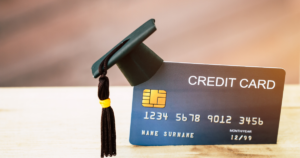When it comes to paying off debt, you have a lot of options! Many consumers who feel overwhelmed by their debt choose debt consolidation. There are many pros and cons of debt consolidation. While it may be a good fit for some consumers, others may choose a different method to pay off their debt. Let’s take a look at what debt consolidation is and the other ways you can pay off your debt!
Pros and Cons of Debt Consolidation
What is Debt Consolidation?
Debt consolidation is a debt repayment strategy that is administered by a financial institution or debt relief agency. With debt consolidation, the consumer pays the agency administering the debt consolidation program one fixed monthly payment. From there, the financial institution disburses that money to the creditors. Typically, traditional debt consolidation involves taking out a loan. The loan can either be a personal loan or a home equity loan. This loan could lead to further problems later on, especially if you choose to go with a home equity loan. If for any reason you can’t make your loan payments, you could lose your house. For many consumers, this is extremely risky.
Another form of debt consolidation is debt settlement, which also involves one fixed monthly payment to a debt settlement company. They negotiate lower payments with creditors as well, so it seems like the consumer is saving money. However, the lower payments are because the consumer is not paying off the principal amount of debt. This means their credit score could take a massive hit. It will be much harder for those consumers to get new credit in the future. Additionally, the IRS counts the money consumers “save” from settling as income, so they will be taxed on it.
However, there is another form of debt consolidation that may be a better fit for some consumers.
Debt Management Program
Nonprofit credit counseling agencies offer debt management programs. These offer benefits such as lower interest rates, reduced fees, and a free credit counseling session to help get consumers come up with a workable budget to get back on track. Consumers can get out of debt in five years or less with this program if they choose American Consumer Credit Counseling! This will not impact a consumer’s credit score negatively. As they start to pay off more and more of their debt, they may even see an increase in their credit score.
Debt management programs work in a similar way to other debt consolidation programs. They also involve one fixed monthly payment, which the agency distributes to the individual creditors. The difference is the consumer still pays off the principal amount of debt. Plus, because debt management does not involve a loan, the consumer’s home is not at risk like it would be with a home equity loan.
An approved credit counseling agency should have nonprofit status, be affiliated with the NFCC, and waive their fees if a consumer cannot afford them. Credit counselors at a reputable agency are independently certified. Also, the longer the company has been in business, the better. Ideally, look for a company that has been in business for seven years or more.
Now that we’ve gone over some of the pros and cons of debt consolidation and its different forms, let’s take a look at some alternative options!
Alternatives to Debt Consolidation
For consumers who do not feel that they need outside help to pay off their debt, there are two popular DIY debt payoff strategies: Debt Avalanche and Debt Snowball.
Debt Avalanche Method
The debt avalanche method is a way to pay off debt by focusing on the account with the highest interest first and making minimum payments on the rest. For example, let’s say your debt load includes a student loan with 6% interest, a credit card with an interest of 17%, and another credit card with an interest rate of 20%. Start by aggressively paying down the card with a 20% interest rate, and paying the minimums on the other two accounts. Next, you would pay off the card with the 17% interest rate. Finally, you would pay off the student loan. By paying down the card with the 20% interest rate first, you’ll save a lot of money that otherwise would have gone towards interest.
Debt Snowball Method
This method ignores the interest rates of your various debt, instead focusing on the balance of each. With the debt snowball method, you start aggressively paying your lowest balance first, and just the minimums on the others. Using the same example, let’s say your student loan balance is $15,000, your credit card with the 17% interest rate has a $1,000 balance, and the credit card with the 20% interest rate has a $5,000 balance. You would start with the card with the $1,000 balance. Once you’ve paid it off, you would move onto the next card, and then onto the student loan. The logic behind this method is that you stay motivated to keep paying off the debt because it feels good to pay off an account!
What Works For You?
After learning the pros and cons of debt consolidation and the ways you can pay off debt yourself, what method works best for you? Of course, it depends on your financial situation. If you don’t feel overwhelmed by your debt load and are confident you can pay it off on your own, then the debt snowball or avalanche method could be good for you. However, if you feel that you are drowning in debt with no end in sight, a debt consolidation program may be your best option. A debt management program with a reputable credit counseling agency can help you get back on your feet. Besides saving you money, if they provide you with financial education materials, you will be equipped with the tools to improve your financial health on your own in the future.
If you struggle to pay off debt, ACCC can help. Sign up for a free credit counseling session with us today!






